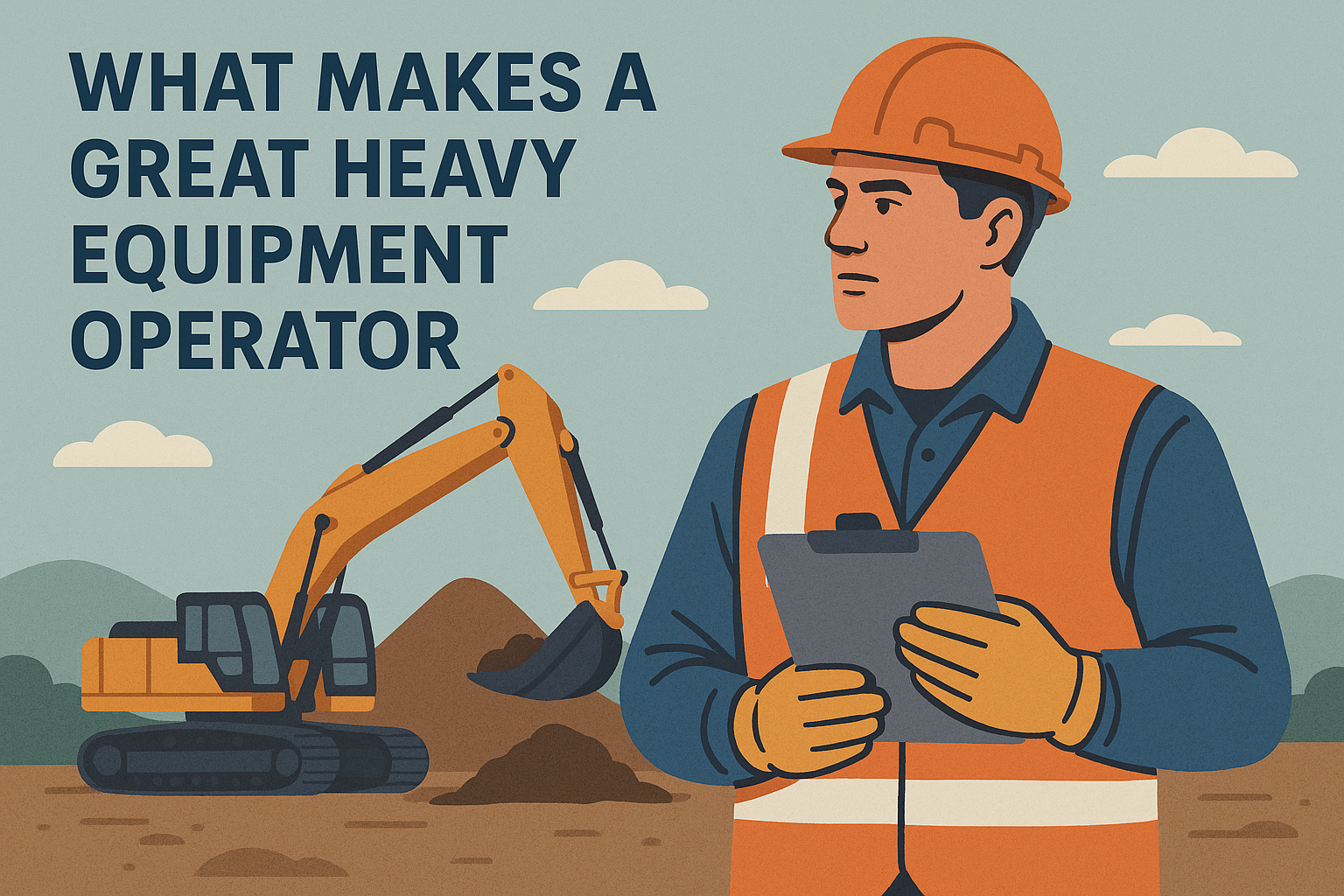Heavy Equipment Interesting Articles at HeavyEquipment.com
The Dirt Desk - Q&A
What Makes a Great Operator? Skill, Feel, and Machine Feedback
There’s no shortage of people who can run heavy equipment — but only a few earn the title of operator. The difference isn’t just in hours or certifications. It’s in the way they move, how they listen to their machine, and how every control input feels like muscle memory.
A great operator doesn’t fight the equipment. They flow with it.
1. Skill: The Foundation of Every Great Operator
Skill starts with experience — but not just any kind. Great operators develop precision through repetition, observation, and pride in their craft. Whether they’re trenching with an excavator or final-grading with a dozer, every motion is intentional.
A skilled operator knows:
- How to read the ground before making the first pass.
- How to use machine weight and hydraulics instead of brute force.
- When to slow down to avoid rework later.
They’ve learned from mentors, mistakes, and long days in the seat. They understand that operating isn’t about finishing fast — it’s about working smart, keeping the site moving, and never breaking iron.
2. Feel: The Intuitive Connection Between Operator and Machine
“Feel” is what separates the good from the great. It’s that sixth sense that tells you when the bucket’s just full enough, when the blade is about to bite too deep, or when the undercarriage is starting to load unevenly.
This isn’t something you can learn from a manual — it comes from seat time and awareness. A great operator feels every vibration, every change in tone from the engine, and every shift in hydraulic response. They know the difference between “normal resistance” and “something’s off” — often before a gauge or light confirms it.
That kind of feel doesn’t just make work smoother; it saves machines from damage and projects from downtime.
3. Machine Feedback: Listening to the Iron
Today’s machines are smarter than ever. Telematics, sensors, and digital displays give operators real-time data on pressure, load, temperature, and idle time. But even with all that tech, the best operators don’t rely solely on screens — they combine the data with old-school awareness.
Great operators use:
- Sound: Subtle changes in engine pitch or hydraulic whine.
- Touch: Pressure through the joystick or pedal that doesn’t feel right.
- Sight: Watching how material flows, piles, or reacts to the blade.
When they sense a problem, they don’t ignore it — they act on it. That’s how small issues stay small.
4. The Operator’s Mindset: Pride, Patience, and Precision
Technical skill is only half the equation. The mindset behind the controls matters just as much. Great operators take pride in a clean, level pass. They show patience when fine-tuning grade or trench depth. And they take responsibility for the machine as if they own it — even if they don’t.
They also respect the team around them: the spotters, truck drivers, and mechanics who keep everything moving. Because on a jobsite, being a great operator isn’t just about how you run your machine — it’s about how you run with the crew.
Anyone can move dirt. But a true operator makes it look effortless.
They combine skill built through years of work, feel that can’t be taught, and an ability to read machine feedback like a second language. When those three things come together, the result isn’t just productivity — it’s art in motion.
Because great operators don’t just run equipment.
They command it.

